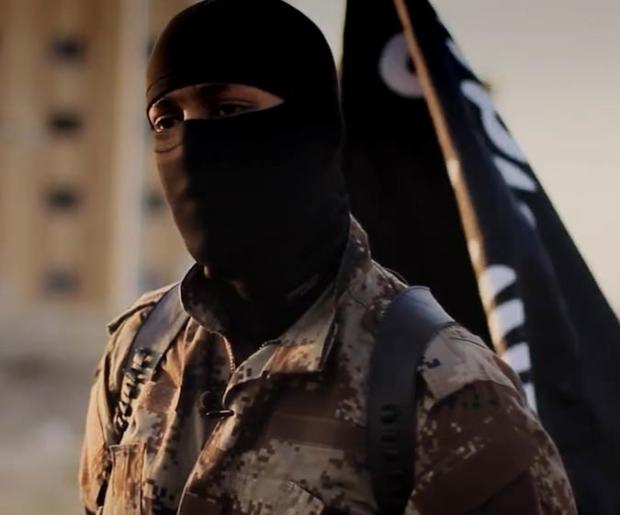FBI to public: Help us identify foreign fighters
The FBI is launching a campaign asking the public for help in identifying foreign fighter terrorists, the bureau announced Tuesday while setting up an online form for submitting potential tips.
"We need the public's assistance in identifying U.S. persons going to fight overseas with terrorist groups or who are returning home from fighting overseas," said Michael Steinbach, assistant director of the FBI's Counterterrorism Division.
The FBI is also asking for help in identifying the man with a North American accent overseeing prisoners seemingly digging their own graves and overseeing their executions in a propaganda video for the Islamic State of Iraq and Syria (ISIS, also known as ISIL).
The FBI released a segment of the 55-minute video in the hopes that someone might recognize the man. In the segment, the faces of the purported prisoners are obscured and their executions are not shown.
FBI Director James Comey told "60 Minutes" that more than 100 Americans have been caught going to Syria or went to fight and have returned. Intelligence estimates put the number of Westerners who have joined the militants as high as 3,000.
"These homegrown violent extremists are troubled souls who are seeking meaning in some misguided way," Comey said. "And so they come across the propaganda and they become radicalized on their own independent study, and they're also able to equip themselves with training again on the Internet, and then engage in jihad after emerging from their basement."
"We're hoping that someone might recognize this individual and provide us with key pieces of information," Steinbach said. "No piece of information is too small."
Authorities were alarmed to learn that Moner Mohammad Abusalha, an American who carried out a suicide bomb attack in Syria, returned to his home in Florida between the time he first traveled to Syria to train with an al-Qaeda offshoot and the day he detonated explosives strapped to his body.
The prospect of radicalized Westerners returning from Syria to their homeland to carry out attacks is particularly worrisome for officials.
"Is this a local fight? Are they going there to really just battle the Syrian forces and to topple [Syrian President Bashar] Assad or is there even a small percentage of these folks who are going to return home and turn their sights on western victims and their fellow citizens? And that's the real concern for U.S. counterterrorism officials," said Juan Zarate, CBS News' National Security Analyst.
Tom Sanderson, a terrorism expert at the Center for Strategic and International Studies, told CBS News that it's very hard to tell which Americans who have traveled to Syria since 2011 might come home and pose a threat.
"To know that would be indicative of a very deep level of intelligence on the person, to be able to know that he, most likely, would have the inclination to attack the U.S. upon return or to attack a U.S. equity overseas," Sanderson said.
